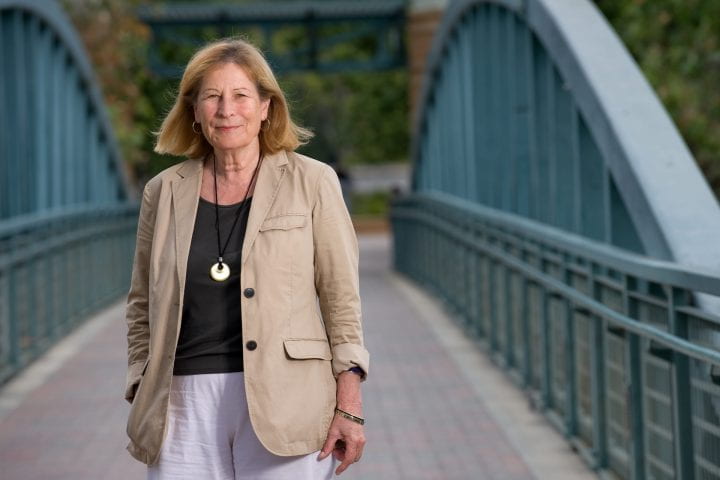Faculty hiring: A decade of diversity
Campus marks 10th anniversary of commitment to gender equity, inclusiveness.

UC Irvine celebrates the 10th anniversary of its ADVANCE Program for gender equity and diversity in faculty hiring this year. Recognition of the challenges in recruiting and hiring qualified women professors in the sciences led UCI to apply for and win one of the first 10 ADVANCE grants from the National Science Foundation. With leadership from Susan V. Bryant, now-retired vice chancellor for research, and Herbert Killackey, currently vice provost for academic personnel, the initial grant – aimed at recruiting more female faculty members – was expanded to include underrepresented minorities as well.
“It remains an effective program because faculty work together to advance excellence through equity,” says Doug Haynes, associate professor of history and current ADVANCE director. “Between 2001 and 2011, the percentage of general campus women faculty increased from 24.1 percent to 30.6 percent, and the overall percentage of female faculty new hires increased from 33 percent to 41 percent. And the underrepresented-minority faculty increased from 7 percent to 8.2 percent.”
The campus is a national leader in developing related programs to recruit and retain faculty. Signature efforts include the Career Partners Program (under which 54 faculty were appointed) and Dependent Care Travel Awards (79 faculty funded). Family-friendly policies enable faculty to manage professional and domestic responsibilities. “We’re looking forward to continued progress in the next 10 years,” Haynes says.
Bryant and Vicki L. Ruiz, dean of humanities and professor of history and Chicano/Latino studies who also championed the ADVANCE Program, recently sat down to discuss how the grant came about and how teaching and research have benefited from the resulting policy changes.
Bryant: I had just become dean of biological sciences, and I was looking at grant opportunities. I found ADVANCE, and it looked perfect, because I had recently realized that the last 17 hires in bio sci had all been men. It’s not like we’d gone out and hired 17 men at once; it just happened one at a time.
Ruiz: Wow.
Bryant: Exactly – so we went out and got this grant. My goal was to put something in place at the local level in every unit. If it’s centralized in administration, it doesn’t work; you have to have a grand plan. So we set up a system of faculty equity advisers in each school who would look at all the requests for faculty appointments and make sure they were written generically enough to include women – and minority men as well. Every search committee had to be mixed; it couldn’t just be men. And the equity advisers would counsel search committee chairs on equity issues. We also went through all the forms and policies and changed them so that this kind of thinking was institutionalized. If you just rely on good intentions, it’s easy to slip back into old habits.
Ruiz: If my memory serves me correctly, ADVANCE was just for STEM fields [science, technology, engineering and math] at first, and then [Executive Vice Chancellor & Provost] Mike Gottfredson said he wanted to expand it to every school. Everything just fell into place after that. In the School of Humanities, we now have 51 percent women and 16 percent underrepresented minorities.
Bryant: That’s right. Mike Gottfredson was a supporter from the beginning, and he funded the program beyond the STEM fields.
Ruiz: What that said to me was that UCI was an inclusive community and that we were interested in recruiting not just women but also underrepresented-minority men. And for me, that makes a big difference. It changes the academic and intellectual conversation. It’s much richer, with new perspectives and all kinds of opinions and ideas bumping into each other in creative ways. And it’s important to have a faculty that mirrors the student population – that students can relate to.
Bryant: Absolutely. When I was in college, there were no women on the faculty at all. At UCI, having a more diverse community of people talking about things allows you to hear things you haven’t heard before, things that are not your experience. Science is about not just facts but how you put them together to build the story based on bits and pieces. Those bits have to be accurately identified, but how you pull them together is completely taste, sense and judgment. That surprises people sometimes about science.